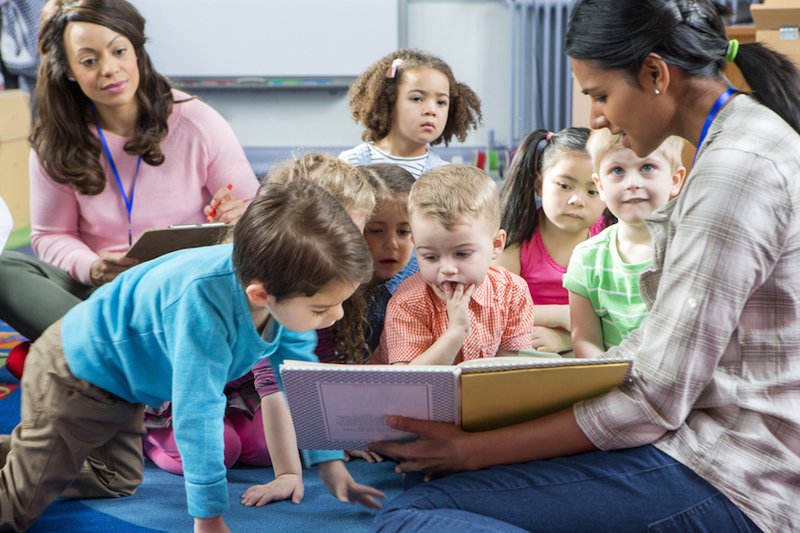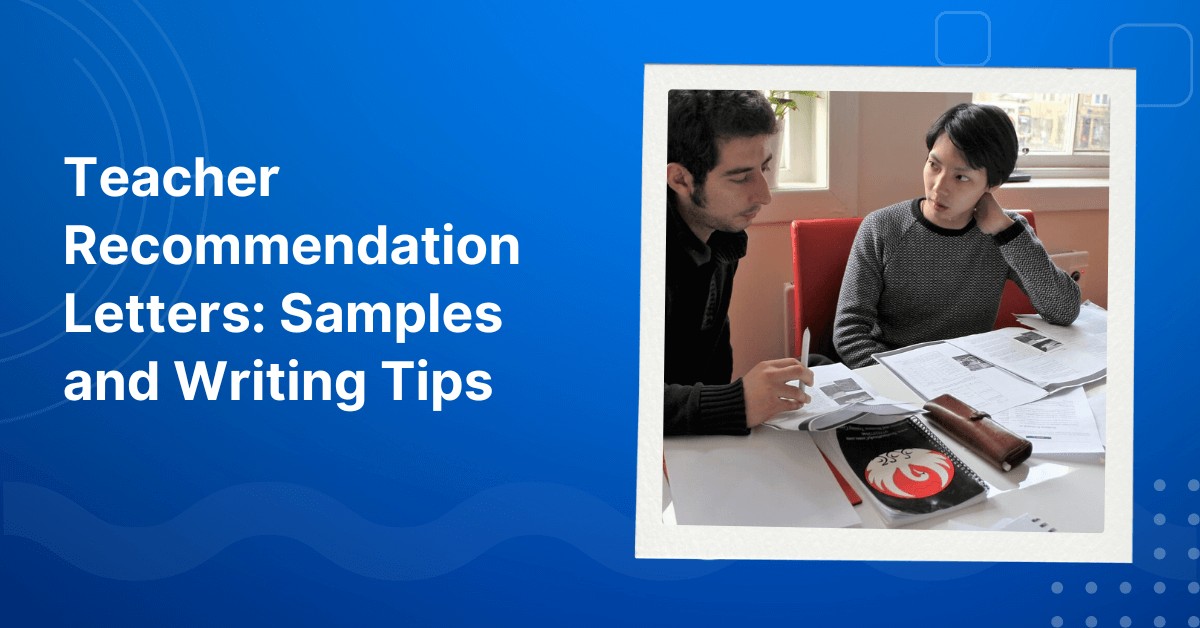Becoming a kindergarten teacher is not just a career choice; it’s an exciting journey to shape young minds. This article is like a compass, offering a comprehensive guide with five straightforward yet vital steps to fulfill your dream of becoming a kindergarten teacher. From educational prerequisites to practical insights, VTJ will equip you with the knowledge and strategies necessary to inspire, educate, and leave a lasting impression on the lives of young children.
>>>Read more: 15+ TIPS A First Year Teacher Must Have To Survive
>>>Read more: How to Foster a Growth Mindset in the Classroom: A Teacher’s Guide
Kindergarten Teacher Job Description
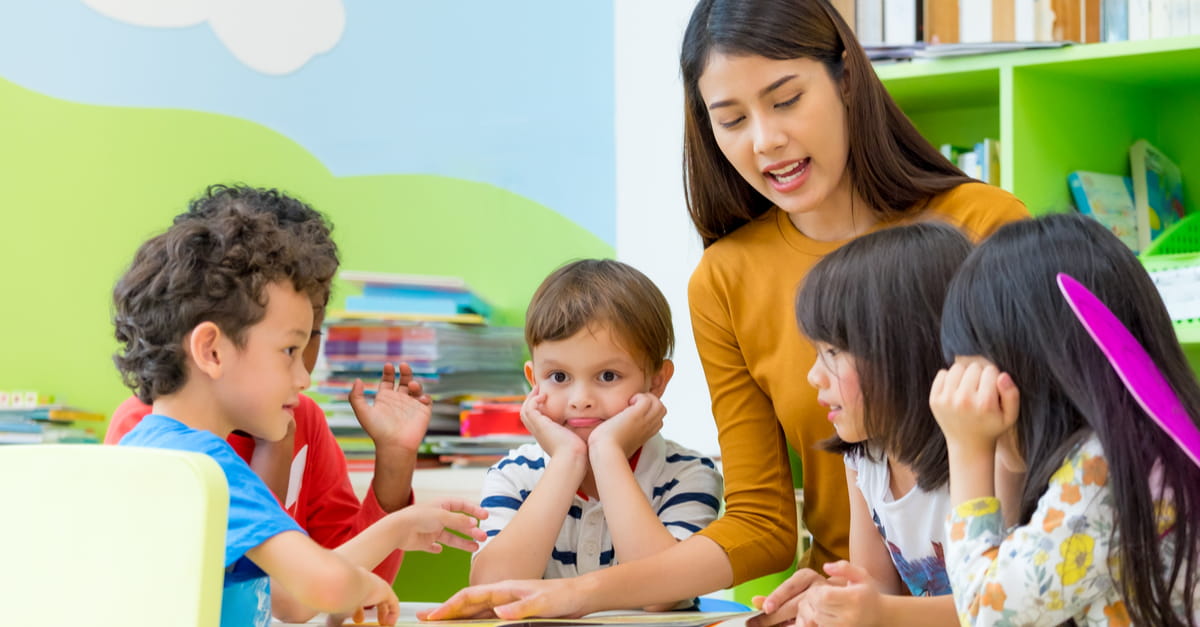
How To Become a Kindergarten Teacher in 5 Simple Steps
Kindergarten teachers are the foundation of a child’s educational journey, responsible for nurturing not only their academic growth but also their social and emotional development. In this role, you will be expected:
- Create a safe and stimulating learning environment
- Plan and execute age-appropriate lessons, assess and monitor student progress
- Collaborate with parents and colleagues to ensure the best possible learning experience for your young charges.
Additionally, kindergarten teachers often play a vital role in identifying and addressing any learning challenges or special needs among their students, making adaptability and patience key qualities for success in this profession.
>>>Read more: What Is An Academic Advisor: What Does An Academic Advisor Do?
>>>Read more: How to Become a Teacher Without a Degree – A Complete Guide
Daily Tasks and Responsibilities of a Kindergarten Teacher
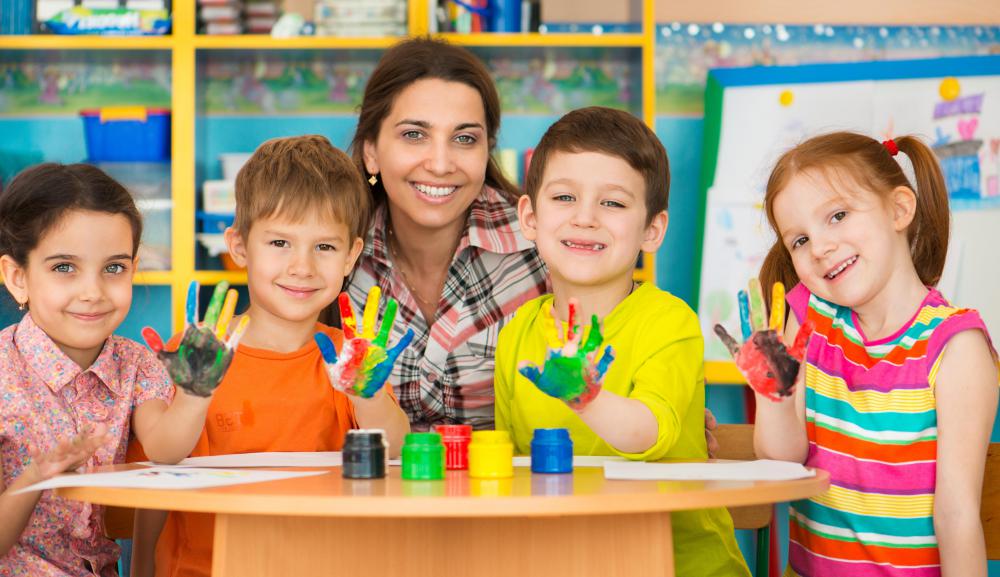
How To Become a Kindergarten Teacher: Daily Tasks and Responsibilities of a Kindergarten Teacher
The daily tasks and responsibilities of a kindergarten teacher are diverse and play a vital role in shaping the educational and personal development of young children. Here is an overview of what a typical day in the life of a kindergarten teacher may entail:
- Set up the classroom. Ensure that all materials, resources, and learning aids are organized and ready for use.
- Review and follow the curriculum guidelines and objectives. Plan lessons that cover various subjects, including reading, math, science, and social studies, designed to meet the developmental needs of kindergarteners.
- Conduct interactive and age-appropriate lessons. Incorporate hands-on activities, storytelling, art, and group discussions to facilitate learning and engagement.
- Implement classroom management strategies to maintain a positive and orderly environment.
- Continuously assess student progress through observations, quizzes, and assignments.
- Maintain open and regular communication with parents or guardians. Share insights into their child’s progress, behavior, and any concerns or achievements. Collaborate with parents to support their child’s education at home.
- Monitor the health and safety of students, particularly during recess, lunch, and field trips.
>>>Read more: What is Effective Teaching? 13 Effective Teaching Practices
Benefits of Becoming a Kindergarten Teacher
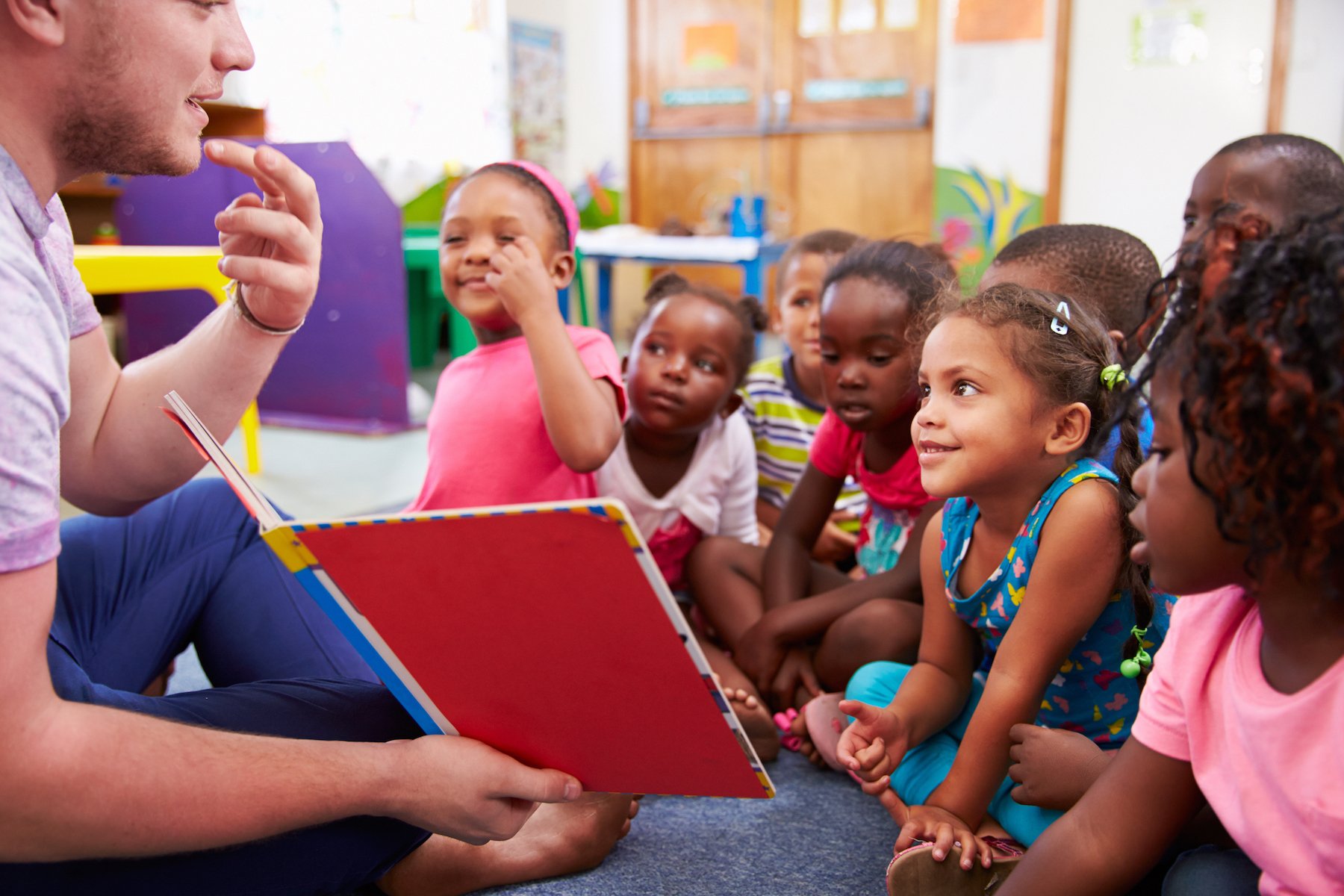
How To Become a Kindergarten Teacher: Benefits
Becoming a kindergarten teacher offers a host of unique and fulfilling benefits that make it a highly rewarding career choice. Kindergarten teachers have the privilege of shaping the early educational experiences of young children. The knowledge, skills, and values instilled during these formative years can leave a lasting impression and serve as a strong foundation for a child’s future academic and personal growth. The demand for qualified kindergarten teachers remains relatively stable, ensuring job security in the field of education. As communities continue to grow, so does the need for educators. Moreover, many kindergarten teachers enjoy a favorable work-life balance, with weekends, holidays, and summers off. This schedule allows for time to recharge, plan lessons, and spend quality time with family and friends.
>>>Read more: What Are the Responsibilities of Teacher? (2023 Guide)
How Long Does It Take To Become A Kindergarten Teacher
The path to becoming a kindergarten teacher typically start with a bachelor’s degree in education or a related field, which generally takes about four years. Following that, you may choose to pursue a teaching credential or certification, which can take an additional year or more, depending on your location and program.
>>>Read more: How Long Does It Take To Become a Teacher? (2023 Complete Guide)
How to Become a Kindergarten Teacher
How to Become a Kindergarten Teacher: Step-by-step Guide
1. Get a Bachelor’s Degree
The first step on your journey to becoming a kindergarten teacher is to earn a bachelor’s degree. You should choose to major in education or a related field, such as early childhood education.
>>>Read more: 10 Types of Teaching Degrees: How to Get One & Become A Teacher
2. Complete a Student Teaching Program
Hands-on experience is essential for kindergarten teachers. As part of your education program, you will typically complete a student teaching internship. This involves working in a real kindergarten classroom under the guidance of an experienced teacher. During this time, you will gain valuable practical skills and insights into managing a classroom and delivering effective instruction to young children.
>>>Read more: Importance of Group Work in Teaching: Benefits & Examples
3. Obtain Your Teaching Certificate
After completing your bachelor’s degree and teaching program, you’ll need to obtain the necessary teaching certification or licensure. The requirements for certification vary by state, so it’s important to research the specific requirements in your state. Typically, this process involves passing exams, undergoing a background check, and meeting other state-specific criteria. Some states also require teachers to complete continuing education courses to maintain their certification.
>>>Read more: Lesson Objectives (Learning Objectives): How to Write in 4 Steps
4. Apply for a Kindergarten Teaching Job
Once you have obtained your teaching certificate, you can start searching for kindergarten teaching job openings. Consider applying to public or private schools, preschools, or childcare centers. Tailor your resume and cover letter to highlight your relevant education and student teaching experience. Be prepared for interviews, which may include demonstration lessons and questions about your teaching philosophy.
>>>Read more: 6 Types of Assessment in Education & How to Use Them
5. Earn A Graduate Degree
While a bachelor’s degree is the minimum requirement for becoming a kindergarten teacher, some educators choose to pursue a graduate degree to advance their career or specialize in a particular area, such as a master degree. A master’s degree in education or a related field can lead to higher earning potential and more opportunities for leadership roles within the education sector.
>>>Read more: How to Deal with Difficult Parents: 10 Best Strategies
Skills Needed To Be A Kindergarten Teacher

How to Become a Kindergarten Teacher: Skills Needed
To excel as a kindergarten teacher and provide young children with a strong foundation for their educational journey, you must possess a diverse set of skills. Here are some key skills that are essential for success in this role:
Subject Knowledge
Kindergarten teachers should have a solid understanding of the subjects they teach, including mathematics, language arts, science, and social studies. Proficiency in these subjects is crucial for designing and delivering age-appropriate lessons that align with educational standards.
>>>Read more: Leadership Styles in Education: 8 Effective Ways to Lead
Communication
Effective communication skills are crucial skills in a kindergarten classroom. Teachers must be able to convey information clearly and concisely to young learners, facilitate discussions, and actively listen to their students. Additionally, strong communication with parents and colleagues is essential for a well-rounded educational experience.
>>>Read more: Meaningful Feedback for Students: Importance, Tips and Examples
Creative and Artistic Skills
Creativity plays a vital role in engaging students’ attention. Kindergarten teachers should have the ability to develop creative and imaginative lesson plans, incorporate art and hands-on activities, and encourage children to express themselves through various mediums.
>>>Read more: 13 Types of Students in the Classroom and How to Deal with Them
Organization
Preschoolers are very active and have not yet developed a fully developed sense of right and wrong. Therefore, organizational skills are essential for managing a kindergarten classroom. Teachers must keep track of lesson plans, assignments, and student records. A well-organized classroom environment helps create a structured and effective learning space.
>>>Read more: 5 Types of Teaching Styles (Their Pros & Cons)
Planning
Effective planning is key to providing a comprehensive education for kindergarten students. Teachers should be skilled at designing age-appropriate curriculum, setting learning objectives, and adapting their teaching methods to meet the diverse needs of their students. Planning helps teachers manage activities during the semester, limiting potential risks in education.
>>>Read more: Why Students Get Bored & How to Engage Bored Students in the Class
Reasons to Become a Kindergarten Teacher

Reasons to Become a Kindergarten Teacher
Here are several motivating factors for individuals considering a career in kindergarten education:
- Nurturing Young Minds: Working with kindergarteners allows teachers to foster a love for learning and curiosity in children, setting the stage for a lifetime of educational success.
- Long-Term Impact: The influence of a kindergarten teacher extends far beyond the classroom. The skills and values instilled at this early age can shape a child’s future success and contribute positively to society.
- Professional Growth: Teaching is a dynamic profession with opportunities for ongoing professional development, including workshops, conferences, and advanced degrees.
- Community Impact: Kindergarten teachers often become integral members of their local communities, contributing to the overall educational experience and culture of their schools.
>>>Read more: 22+ SMART Teacher Goals Examples in 2023
Kindergarten Teacher Job Outlook
The job outlook for kindergarten teachers has recently been generally positive, with steady demand. However, several factors, including population growth, government initiatives, special education trends, and budget considerations, can influence the availability of teaching positions in different regions and school districts. Let’s develop and stay current with educational trends to enhance your prospects in this rewarding field.
>>>Read more: How To Write a Curriculum in 8 Steps: A Complete Guide
Tips on Becoming a Successful Kindergarten Teacher
Build and Maintain Routine
Establishing and maintaining a consistent routine is paramount in kindergarten education. Young children thrive when they know what to expect. Craft a daily schedule that encompasses various activities and subjects, and stick to it. Visual aids, like a visual schedule or a classroom calendar, can be incredibly helpful in ensuring that children understand and anticipate the daily routine. Consistency in rules and expectations creates a stable and secure learning environment, enabling children to focus on their education with confidence.
>>>Read more: Why do you want to be a Teacher? 15+ Example Answers
Add Fun to Your Teaching
Kindergarten classrooms should be hubs of creativity and play-based learning. Incorporate fun and interactive elements into your teaching methods. Utilize props, games, and hands-on activities to make learning enjoyable and engaging. Encourage children to explore and discover the world around them, celebrating their achievements.
>>>Read more: 4 Types of Learning Styles: How to Use VARK Model in Teaching
Break Your Lessons into Chunks
Recognizing that young children have shorter attention spans, so structure your lessons accordingly. Keep lessons concise and focused, and employ a variety of teaching methods to maintain interest. Storytelling, songs, and interactive activities are effective tools for keeping lessons dynamic and captivating. Furthermore, incorporate opportunities for movement and physical activity throughout the day to help children remain engaged and energized.
>>>Read more: How To Write a Lesson Plan in 6 Steps: The Complete Guide
Build Relationships with Your Students
Developing strong relationships with your students is the cornerstone of successful kindergarten teaching. Take the time to get to know each child individually, understanding their unique interests, strengths, and challenges. Cultivate a warm and welcoming classroom environment where every student feels safe, valued, and respected. Promote open communication, actively listening to students’ thoughts and concerns.
>>>Read more: 20+ Effective Classroom Management Strategies and Techniques
A Well-Rested Teacher Is a Successful Teacher
The well-being of the teacher is equally vital for a successful kindergarten classroom. Prioritize self-care and ensure you get adequate rest, as teaching young children can be physically and emotionally demanding. Managing stress and workload effectively is crucial to prevent burnout, so don’t hesitate to seek support from colleagues, mentors, or a professional counselor when needed.
>>>Read more: 15+ Ways to build confidence in your ESL students
The journey to become a kindergarten teacher is a valuable endeavor that can leave a lasting impact on young lives. From acquiring the requisite educational background and hands-on experience to obtaining the necessary certifications, each step is a building block that ultimately leads to a fulfilling career in early childhood education. Your dedication to nurturing the minds and hearts of kindergarteners will not only shape their futures but also contribute to the betterment of society as a whole.
FAQs
How Much Does It Cost To Become A Kindergarten Teacher?
The cost to become a kindergarten teacher can vary significantly depending on factors such as your location, the type of education and training you pursue, and whether you attend a public or private institution. On average, you can expect to spend anywhere from $20,000 to $40,000 or more for a bachelor’s degree in education.
🌟 Are you facing difficulties in finding and securing teaching positions in Vietnam? Are visa procedures causing you trouble? Feeling overwhelmed and directionless upon your arrival in Vietnam for teaching assignments? Don’t worry, VTJ’s English Teaching Placement in Vietnam (EPIV) Program 2024 provides comprehensive support to solve ALL the matters.
👉👉👉 Click HERE to request free consultation.


